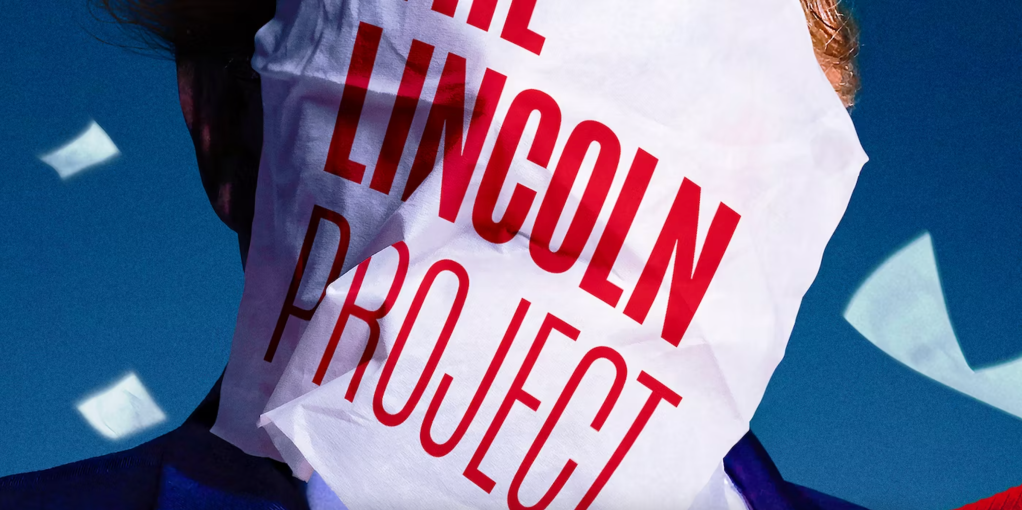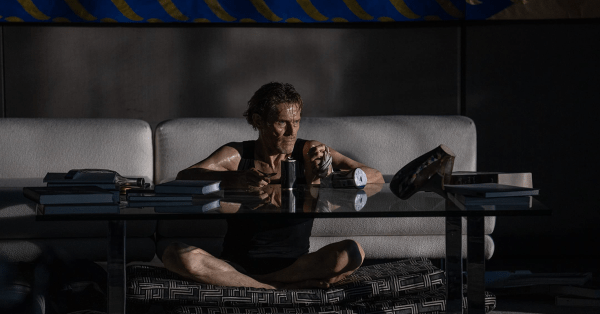I would like to see a documentary about how Showtime’s new Lincoln Project documentary ever got made. It’s not surprising that the political action committee’s founders would jump at a film pitch in the thick of the 2020 election, when the group was a media darling and the money was coming in hand over fist. But as the doc rolls on and internal tensions emerge, you start to wonder how wise it is for all these people to be airing their dirty laundry in front of the cameras. And as the five-episode arc nears its conclusion, the group finds its reputation in tatters, and various former junior members are filmed complaining about the things their NDAs won’t allow them to talk about, you’re ready to give directors Fisher Stevens and Karim Amer some sort of lifetime achievement award for source-buttering. It’s just too bad all that laudable effort doesn’t make for better TV.
On paper, there’s the elements of a good story here. The Lincoln Project details the rise and fall of the Lincoln Project, the PAC launched in 2019 by a group of longtime Republican operatives who opposed the reelection of Donald Trump. By design, most PACs operate largely in obscurity. The Lincoln Project, by contrast, quickly made themselves a central part of the 2020 conversation with a barrage of slashing anti-Trump ads designed to blow up on social media. “We have, as the great political philosopher Liam Neeson once said, a particular set of skills,” co-founder Rick Wilson said at their 2019 launch event. “Skills that make us a nightmare for people like Donald Trump.” The nemesis branding—which Trump himself helped reinforce by repeatedly denouncing the group—proved a gold mine, as the Lincoln Project brought in more than $90 million over the course of the election.
When Trump lost, the Lincoln Project was riding high, with plans seemingly in the works to spin the brand off into a new media company. But internal leadership divisions and a massive sexual-harassment scandal involving co-founder John Weaver sent the group spinning into disarray at the moment of their apparent triumph. “It’s Icarus, or hubris,” cofounder Reed Galen says. “Use whatever Greek tragedy you want to. This is not a new story.”
To that tale of tragedy attach a whole cast of colorful characters. There’s Wilson and co-founder Steve Schmidt, of course, both of whom seemingly stick to a tone of high melodrama every time they speak. “Some people think I’m pretty good at this shit,” Wilson tells the camera. “I’m the anthropologist of Donald Trump’s shitty world.” But they’re far from the only members of the group with larger-than-life egos: “Michelangelo was asked to paint the Last Judgment during the Reformation,” political director Mike Madrid says in the opening episode. “In many ways, artists were the first political consultants.”
Still, you can’t help but feel there’s a reason you don’t see many shows made about political action committees. It’s hard to wring much emotional drama out of an organization that, when it comes down to it, exists to make and market political ads. Interminable scenes portray the sausage-making process: A new Trump mini-scandal will break, and the Avengers will assemble on Zoom to brainstorm how to hit it. At these moments, it’s hard not to wonder how much attack-ad genius you actually need to take on a target like Donald Trump. A story comes out alleging that Trump called World War I troops “losers and suckers,” and the Liam Neesons get to work: “The military stuff has put a massive dent in them with the vets and with suburban women,” Galen says knowledgeably. “He’s faithless,” says Schmidt. “We gotta look for the weak place every day and attack on it.”
More interesting are scenes that spotlight the contradictions in the group’s ostensibly high-minded moral crusade. As election day draws near, there’s a new crossover opportunity: Demi Lovato is releasing an anti-Trump song and wants the Lincoln Project to create a video for it. The brain trust is thrilled: “This could be a really good fundraising push,” someone says on Zoom. “Like, really good.” Video editor Kate Salkowitz has more mixed feelings: “Ugh, I hate pulling these clips of, like, George Floyd’s brother on the ground in tears. It feels so exploitative.” Wilson gets somber: “I know you do. But you know what? You are reaching emotional resonance with people. It’s not exploitative. This is what people need in this moment.” When he sees the finished product, he can’t keep the giddiness from returning: “We’re about to wreck the internet with this, okay?”
On the whole, though, the documentary never really manages to justify its own existence. What’s so important about the Lincoln Project, that we should be spending all these time listening to them talk about how important they are? The 2020 election makes for a gripping backdrop—COVID and its accompanying shutdown, mail-in voting, the whole “stop the steal” boondoggle—and the group certainly played a large supporting role in all that drama. Given the slimness of Biden’s eventual victory, maybe their involvement was even dispositive—in the same sense that, in a one-point basketball game, every basket can be considered the winning shot.
But the things that made the Lincoln Project most notable, the things that grew their brand on Twitter and in the media—the things, in short, that likely made them attractive to Showtime as the subject for a documentary in the first place—these things had more to do with the founders’ talent for self-mythologizing than with any unique insights they they brought into the messaging arena. They convinced donors across the nation that they had a particular genius for getting under Trump’s skin—a feat also regularly achieved by the likes of Mitt Romney, Jeff Sessions, and Brad Raffensperger. None of those guys ever managed to spin that relationship into $90 million, though—so maybe there was some genius at work here after all.









Please note that we at The Dispatch hold ourselves, our work, and our commenters to a higher standard than other places on the internet. We welcome comments that foster genuine debate or discussion—including comments critical of us or our work—but responses that include ad hominem attacks on fellow Dispatch members or are intended to stoke fear and anger may be moderated.